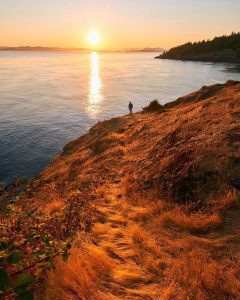Caye Caulker, Belize
11/12/2015
Today I had the privilege of returning to work with Form 3 and Form 2 students at the Ocean Academy on Caye Caulker, Belize. As usual I was energized by the youth, particularly their ideas and their active engagement in the lessons we completed together. Unlike previous trips with groups of college students in my study abroad course, I went in alone today. It was somewhat terrifying being that outnumbered, but we had a great, great day.
It began with three simple questions. Where is marine debris on this island? What do I know about? What can we do with maps to raise awareness about marine debris?

Maptastic selfies are the best way to show the power of collaboration with GIS.
In the form 3 morning science class we first analyzed the data and maps created in last May’s study abroad program where youth and college students collected marine debris data using tablets loaded with ArcGIS Collector. Today, the students concluded that debris is an island-wide problem, but it is most concentrated in non-business district areas and areas away from the eye of the tourist and boat docks. They’ve really created a powerful visual that can attract greater attention to this important issue.

Ocean Academy form 3 students mapping and analyzing their marine debris data from last year’s study abroad course.
Then we moved to the form 2 English class and introduced these students to the power of mapping and GIS (and we never even used the technology). We had them create a map of Belize on the board and identify where they felt cyber bullying was most prominent. This was one of their lessons in their English class so we wanted to connect our maps discussion to that. They had some great ideas and without even knowing it created a database and project design that we can use to begin a cyber bullying mapping project in Belize in the coming months. It’s going to be a challenging and exciting project and we are going to connect it with our People Loving People kindness mapping project as well. More in early 2016.

Form 2 students brainstorming a mapping strategy for cyber-bullying in Belize. Students drew a map predicting where they thought the hotspots would be located.
Then after lunch we brought together form 2 and 3 for some collaborative mapping using ArcGIS Online. The youth focused again on marine debris, this time mapping their perceptions of the problem of marine debris. Students were asked to map where debris was an issue and to estimate the severity of the problem from their collaborative memory of the spaces on the island. They then mapped what the felt were the business, residential and environmental reserve districts to overlay their debris perceptions over to visualize spatial patterns. What did they learn? The power of the crowd can be harnessed to map things important to youth and can quickly tell a powerful and highly visual story. About debris specifically? Again, like they learned in the fieldwork last May, once you get away from the tourist and business districts, debris is not as likely to be cleaned up. The youth are thinking about using their map results and some follow-up work to present data and solutions to the Caye Caulker Council. Check out the online map at http://ucfonline.maps.arcgis.com/apps/webappviewer/index.html?id=f6dc95764912444a85cfba9f069c0a6c

Form 2 and 3 students working together using ArcGIS Online to map their perceptions of marine debris and land use patterns on the island.
What a talented group of passionate and knowledgeable youth.
I’m excited for our return to Caye Caulker in early 2016 and continued collaborations with Ocean Academy. Partnerships like this are what community GIS and citizen science are all about, and we are thrilled to continue this important work in the future. Youth and geospatial technologies: a winning combination!
#citizensciencegis


 As of April 2018, I am deeply honored, excited, and humbled to be named The Florida Geography Steward with National Geographic. Don’t worry, I’m not leaving my assistant professor role at UCF. This unique opportunity enhances our work at UCF and leverages partnership opportunities to support geographic education and research across Florida and beyond.
As of April 2018, I am deeply honored, excited, and humbled to be named The Florida Geography Steward with National Geographic. Don’t worry, I’m not leaving my assistant professor role at UCF. This unique opportunity enhances our work at UCF and leverages partnership opportunities to support geographic education and research across Florida and beyond.
 We are pleased to announce that our 2017 National Science Foundation (NSF)
We are pleased to announce that our 2017 National Science Foundation (NSF) 







